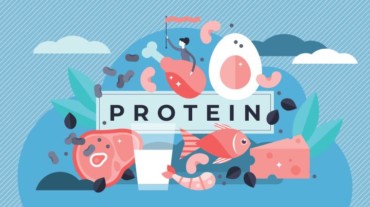
Obesity is a metabolic disease, which has turned into an epidemic now. An exponential rise in the number of cases of obesity has made it a bigger problem than malnutrition. It has become a leading cause of disability and chronic complications not only in adults, but children and adolescents too. But you can fight it by making sustainable changes in your food and lifestyle habits.
Obesity is calculated and graded as per the body mass index (BMI), which means that more than 30 kg/m2 is categorised as obesity.
Appropriate approach and healthcare supervision is needed to treat obesity. Setting realistic goals and being consistent with the treatment should be the aim to overcome this disease. Obesity can be a result of unhealthy lifestyle and eating habits, and sometimes genetic.
Despite the weight, obese people are deficient in micronutrients (like vitamins, minerals) as well as macronutrients (carbohydrates, proteins). This happens due to excessive or unproportionate consumption of fats and carbohydrates over vitamins, fibre, and protein.
Sometimes, in the pursuit of weight loss, people make dietary changes which can in fact disturb the nutritional supply to the body.
People should focus on long-lasting results and make consumption of wholesome nutrition an everyday habit. The idea lies in maintaining the right weight, rather than chasing crash diets.

Fact: Nuts, legumes, and complex carbohydrates (fruits and vegetables) contain nutrition, but can increase your calorie load more than required. Hence, consumption of these need to be tailored as per individual requirements to gain nutrition, without consuming excess fats or calories.
Fact: Most overweight/obese people consider eating less frequently to lose weight. However, eating large meals at once not only increases your total calorie intake, but also increases cravings for sugar, salt, and carbohydrates, making one vulnerable to easy snacking and processed food intake. Smaller frequent meals with tailored calorie intake helps in improving metabolism, maintaining sugar levels, and does not lead to binge eating.
Fact: Thanks to all the diet trends that roll out on social media, most people think consumption of carbohydrates leads to weight gain, whereas consumption of excessive calories leads to weight gain. Carbohydrates are required to generate energy, and to stay active. Complex carbohydrates should be consumed in adequate amounts to gain and restore energy.

Fact: Most people think consuming only protein and fats can lead to weight loss, but proteins too can add to excess calories. The demand of proteins for the body increases as we age, but a high protein diet can have adverse impact on the kidneys, and should be followed only under supervision.
Select Topics of your interest and let us customize your feed.
PERSONALISE NOWFact: Most people start with harsh diet plans to see quick results for weight loss, and end up being deficient in vital nutrients. They opt for over-the-counter supplements to compensate. However, supplements do not suffice the daily allowance of micronutrients required for the body, and hence should be also consumed through diet.
Lack of nutrients not only adds to the complications of obesity, but may also have prolonged ill effects on the organs. Obesity is a chronic illness and needs continuous motivation and supervision for treatment. Hence, wholesome eating along with exercise and physical activity must be encouraged over extreme diet trends for better health and well-being.